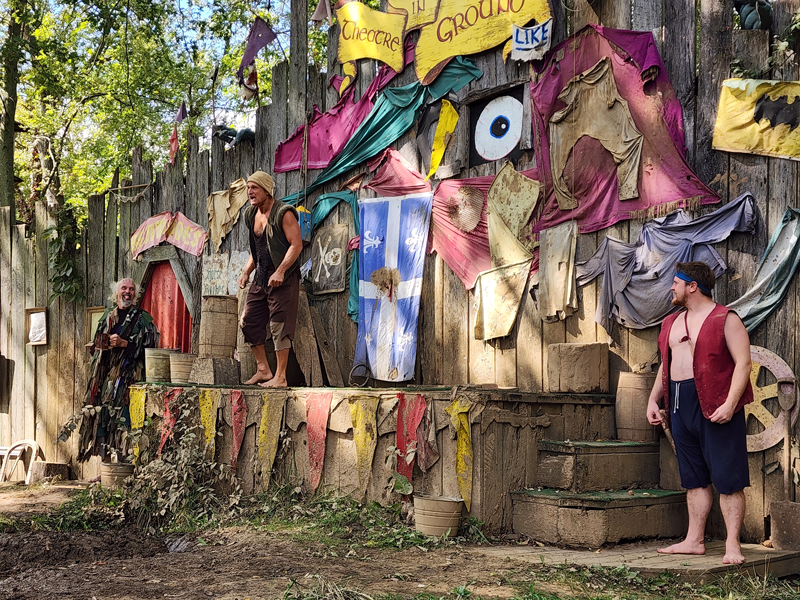A (Very) Brief History of Low Comedy
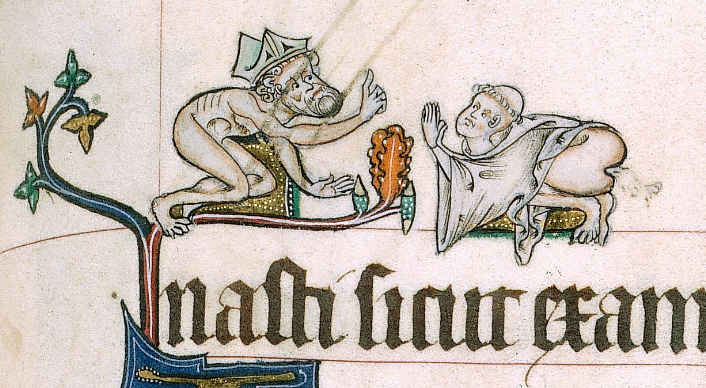
When looking back at the long tradition of ren faire entertainment, comedy comes in as the most prolific category. Whether it’s the bawdy aesthetic, the pageantry of color and sound, or the fact that we’re all walking around speaking in the accent of a country we fought a war to separate from, there’s something about the festival atmosphere that encourages one to have a sense of humor. If laughter is the best medicine, then the Ohio Renaissance Festival is a veritable pharmacy of options to tickle your funny bone.
Comedy in and of itself has always been a much-needed source of relief. Even in the darkest periods of human history, there has been a desire to find humor in the situation. It brings out the absurdity of existence and gives the human spirit hope for brighter days where everything can be looked back at with amusement. We’ve talked about some of this before, discussing the role of the jester in the court and the subtle tightrope one had to walk when mocking figures of political importance. However, the concept of comedy has always been much more diverse than a single iteration. What the common folk find hilarious has always been different than what the nobility considered worth a laugh, and those who ply their trade by getting a guffaw must know how best to play to their audience. Even Shakespeare wasn’t above a dirty joke or two.
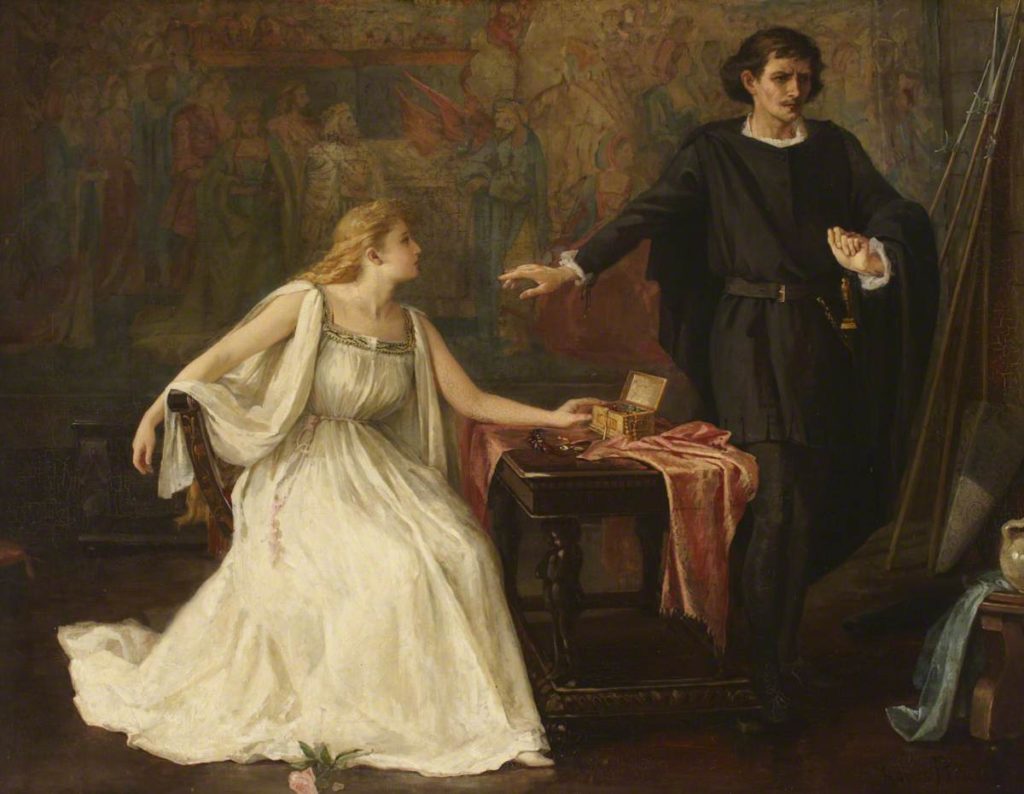
OPHELIA: You are keen, my lord, you are keen.
HAMLET: It would cost you a groaning to take off my edge.
The Tragedy of Hamlet, Prince of Denmark. William Shakespeare, (1599/1601)
Humor has always done the work of taking the edge off difficult or dire situations. To be a person of good humor and wit in Elizabethan England was a mark of excellence. A successfully good comedian could hide all manner of political, religious, and moral observations within their work and create such a riot of laughter that it was difficult to take offense! Take for instance the works of John Heywood (1497 – 1580). It’s a name you may well never have heard of, but his proverbs have lasted for centuries.
- Out of sight out of mind. (1542)
- Beggars should be no choosers. (1546)
- I know on which side my bread is buttered. (1546)
- This hitteth the nail on the head. (1546)
- Wolde ye bothe eate your cake and haue your cake? (1562)
To the average folk living in the Tudor Era, these words offered more than just wisdom, but wild amusement as he utilized his plays, songs, and proverbs as the equivalent of call-out posting circa 1540s England.
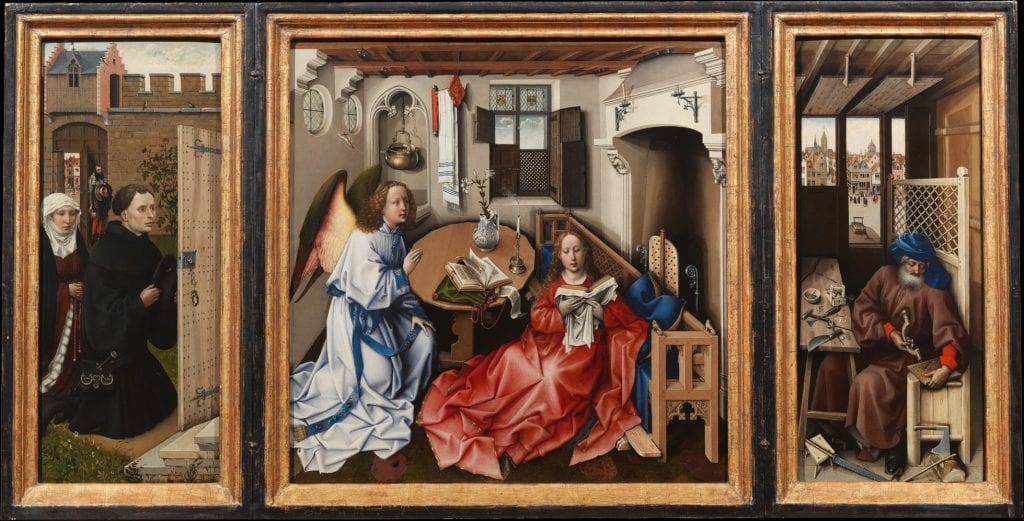
Nothing was above mockery if you knew how to do it right. In Florence, Italy, when the plague began to spread and mass graves dug so deep they hit the water level was being filled with bodies to rid the city of disease, one writer at the time referred to the burial as ‘a lasagna’ due to the layering of corpses and dirt. The Saints themselves were not above derision. Even Saint Joseph of Nazareth; you know, the fellow who was married to Mary, the woman who birthed Jesus, was often the subject of bawdy symbolism in artwork from people who found the entire situation of his divine cuckolding too funny to ignore. In the above painting, it would seem that just about everybody is aware of the annunciation EXCEPT Mary’s husband. In fact, sometimes finding the comedy in their story led to a rise in veneration from the faithful. Perhaps it made the holy humble and more relatable to the average person.
A young Florentine was going down to River Arno with one of those nets in which they wash wool, and met a frolicsome boy, who, out of fun, asked him what birds he was going to catch with that net of his? “I am going to the Brothel” replied the youth, “to spread my net there, and catch your mother.” “Mind you search the place carefully,” retorted the boy, “for you will be sure to find yours there also.”
– Poggio Bracciolini (1380-1459)
From ‘Your Momma’ to jokes about flatulence, low humor has always been a favorite of the masses, and honestly, who can blame us? Not everything needs to be high art to be delightful and provide a moment of levity. And yet to the tide and true comedians throughout the ages, turning offense into observation has often been the means by which philosophies are developed and cultural change is given a swift kick in the arse. And all from the telling of a simple little joke.
An Interview with The Mud Show
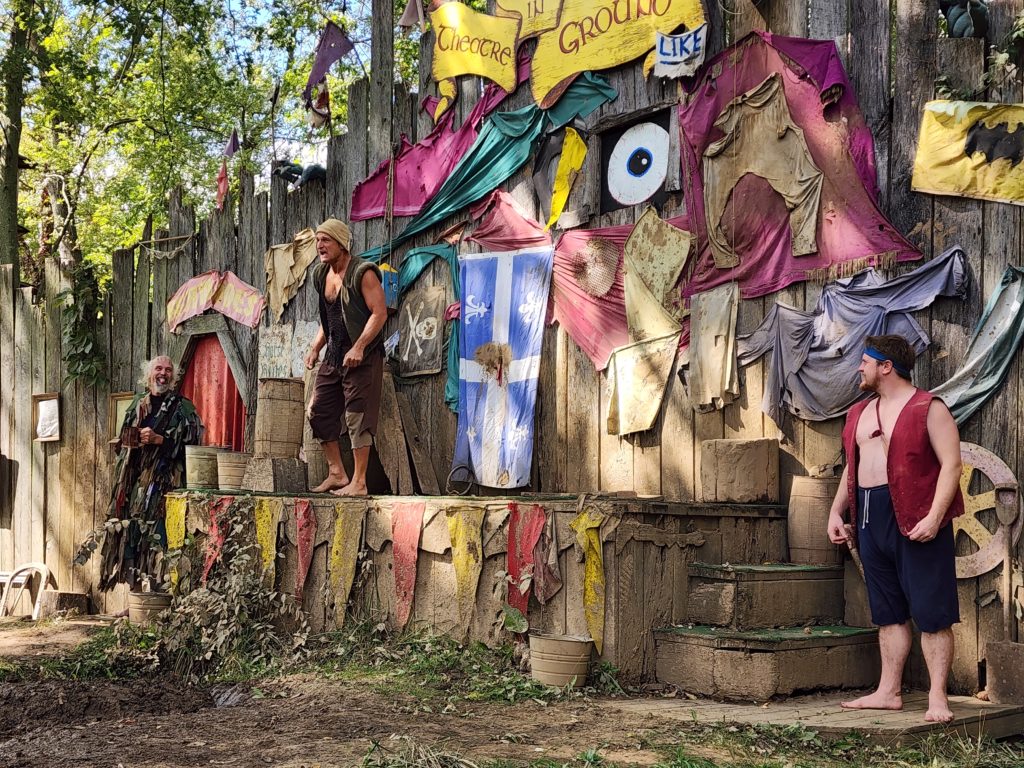
Johnathan Crocker: The original Mud show originated in what was at the time the King Richards Faire (Chicago), what is now Bristol. Some guys, Northwestern Students, were cast as the beggars. They were literally begging, you know, that was their thing. Well, one day it rained and there was all this mud. Like any good improv actor, they utilized it and started doing stunts in the mud. At the end of the day, they were counting up their tips and realized they had made way more money playing in the mud than through their usual routine. Starting thinking “Wow if only we could have mud every day!”
So they developed a show around mud, playing around with gross-out humor and one-upmanship, creating a real crowd-pleaser. I encountered them at the Sterling Renaissance Festival and saw the power that the mud had to get and keep the audience’s attention and how incredible that was. They were already experimenting with doing more plot-driven shows but it hadn’t really found a foothold yet. I was performing as the village idiot at the time and I suggested doing Beowulf as a mud show. That was in 1982. We’ve now performed Beowulf close to 2,500 times since then.
So much of it was timing. In the early eighties renaissance festivals were just really starting to expand so there was all of this need for entertainment. I wasn’t aware of the larger picture then, I was just sort of sucked into the vacuum of it. Making a career out of performing at a faire is a bit like being a frog in boiling water. I first got involved and thought “Oh, no way. This is just a summer acting job.” I loved that. I was still in college my first year, assuming that my career path would continue as plotted. I would finish my history degree, go on to get a teaching degree, and become a history teacher somewhere. The first summer at Sterling was my first encounter with improv and immersive theatricality. Blew the roof off my mind. I got to work in such an amazing environment with such amazing people. I decided to take one more year, and do it one more time. The folks from the Pennsylvania faire were in the audience for the Beowulf show, and loved it. Basically hired up right there to go to PennRen after we were done at Sterling. Suddenly I had another festival! Then while we were performing in Pennsylvania, the entertainment director from Scarbrough Faire in Texas saw us and asked us to come and do our show for them in the spring.
Comedy Gold
Picking Beowulf seemed obvious. The pit of evil just called out to be turned into a mud pit. It’s a classic monster show, good vs. evil. Dante’s Inferno also had this decent in Hell which just seemed natural to work with. It’s hard to catalog the creative process. Over the years we’ve played with scripts like ‘Muckbeth’ and sometimes it works, sometimes it doesn’t. But you get an idea and it’s like “Oh hey that could work.” Then the show evolves in real time from there. You work with your troupe, somebody improvs a line and it just clicks. You notice there’s a drag at some point and weave it until you can make it happen.
Why does the mud show work? It’s sorta the same mentality but different in its own way as lighting a torch on stage. The minute people see that torch they wanna know what you’re going to do with the fire. It’s elemental. If a crowd sees someone up in the air, on chairs or on a tightrope, it’s gonna hold their attention. Being in the mud is the same. It’s just a very basic, visceral connection to people. Everyone has experienced mud. Whether they look at us and think “Oh I could never do that, it’s so gross!” or “Oh I love that! I wanna do that!” Either way, they are riveted and that makes them want to see what we are going to do with it. At a faire, you don’t have lighting. You’re not in an isolated theater. You have to find a way to focus people’s attention on what you’re doing because there are plenty of distractions. The mud is a gift. It creates the staging we need in this environment to create a focus and auditorium. It makes it easier to do a storyline-based show as opposed to a variety show.
Theater in the Ground
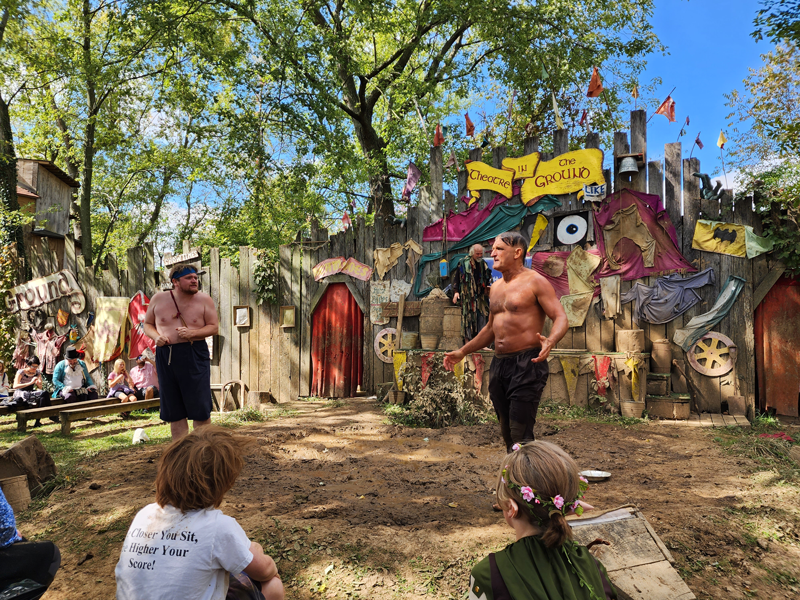
The mud here isn’t just as simple as it seems. You can’t just go and grab it from anywhere on the grounds. We’ve worked hard to create a consistency that is smooth and fresh and works for the show. There’s no real formula, no specific ratio to it. The weather changes every day so it’s kinda like being a cook. You just know when consistency is right. Too thick? Add a lil’ bit of water. Too thin? Add a little bit of dirt. Which we sift before we add it in. We lose about two wheelbarrows full of dirt every week out of the mud pit. It either collects and becomes part of the stage as we move around to perform. Some of it ends up outside the stage as it flies through the air, or it is worn home by the wonderful patrons who sit close enough to share the mud with us. So keeping it leveled up, raking out leaves and dirt, and just generally getting things ready is part of our task every Saturday.
One day, in the distant, distant future, we’ll be passing this on to the next generation of mud men. You don’t want to get too far ahead of yourself. Periodically, people move on for various reasons. Life happens. There’s a lot that goes into being a mud man so finding the right person for the troupe is more of a process of elimination than anything else. If you can handle getting yourself muddy from head to toe, if you can handle the cold, those are the prerequisites. If you get easily grossed out, then this probably isn’t the career for you. At the same time, it’s a very organic process. There’s a community out there, performers who are already invested in the ren faire environment, already had the experience and involvement. I hope the show goes on forever. There are talented people out there who are capable of doing this.
I feel a lot of pride and gratitude looking at what we’ve created. In part, it’s because we are good at what we do. We’ve got the experience, we’ve got the skills. But also, we started this show. We’ve been here from day one. We’ve gotten to watch this audience grow with us throughout the years. It’s not uncommon for someone to approach us and say “Hey, I remember coming to see you when I was younger and now I’m bringing my grandkids!” Often they come up for hugs, sort of a mudman’s blessing. It’s wild! We’ve woven ourselves into the lives of so many people and that’s part of our staying power. I feel it’s a real blessing that this wacky thing we do has become a family tradition for some people. Occasionally we’ll get people who come up and tell us that the laughs we’ve provided has gotten them through a very dark time. It’s life-changing. It’s unparalleled.
